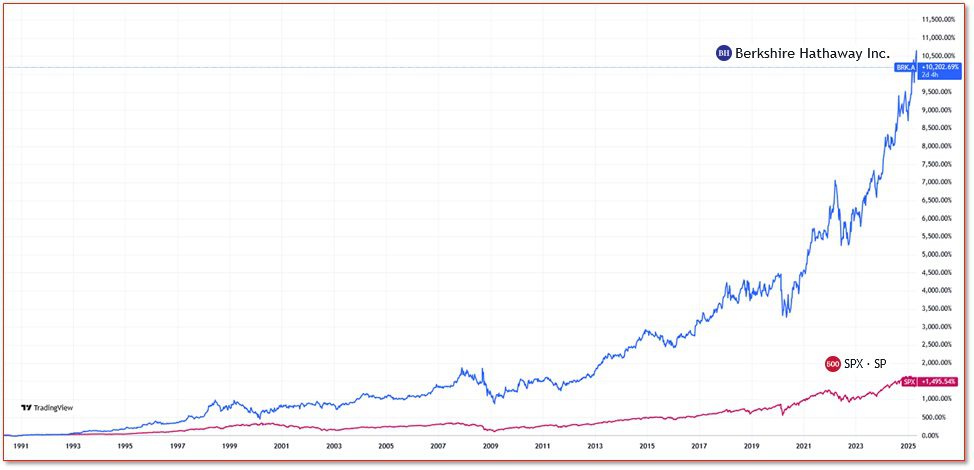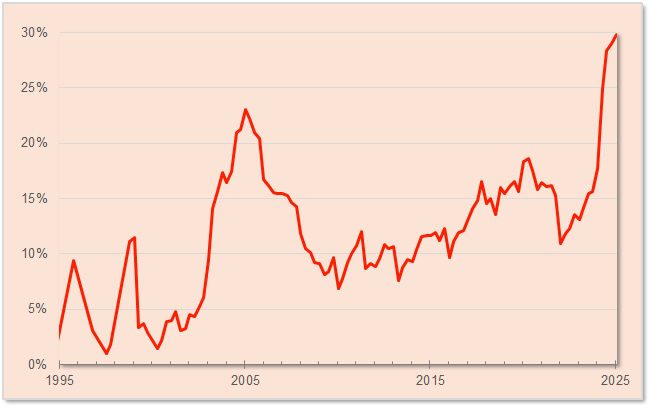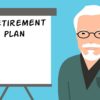Analyst Insights
Berkshire Hathaway Faces a New Era with Buffett’s Retirement
Warren Buffett will step down as CEO of Berkshire Hathaway at the end of 2025, marking a pivotal transition for the firm he led for decades. Greg Abel, currently overseeing non-insurance operations, will succeed him as CEO while Buffett remains as chairman. The announcement led to a short-term market dip and reignited debates around capital allocation, stock buybacks, and dividends. With a record $348 billion in cash, investors are closely watching how Abel steers the company’s next phase. Buffett’s philanthropic legacy also continues, with plans to donate his full estate, currently valued at $147 billion.
Warren Buffett, the 94-year-old “Oracle of Omaha,” stunned thousands of shareholders at Berkshire Hathaway’s (NYSE: BRK.A) annual meeting by announcing he’ll step down as CEO at the end of 2025. The crowd’s reaction was a mix of reverence and surprise. Only his children, Howard and Susie, knew beforehand.
Greg Abel, long considered Buffett’s successor, will officially take the reins as CEO while Buffett stays on as chairman. Abel, 62, has led non-insurance operations for years and was handpicked for his steady, pragmatic approach. Buffett emphasized: he isn’t selling a single share, and he believes Berkshire’s prospects are even brighter under Abel.
The market’s reaction to Buffett’s announcement was swift as Berkshire shares dropped nearly 3% to 5% in the days after, erasing $59 billion in market value. Some see this as a natural reaction to losing an iconic leader. Others point to retail investors buying the dip, pouring $24 million into Class B shares on the first trading day after the news. There’s anxiety about losing Buffett’s vision, but also a sense that Abel, with Buffett’s ongoing guidance as chairman, can keep the ship steady.
Berkshire’s Long-Term Outperformance
Buffett’s legacy is built on numbers that are hard to match. Since 1965, Berkshire delivered a compounded annual return of 19.9%, nearly double the S&P 500’s 10.4%. A $1,000 investment in 1965 would be worth over $55 million today.
This performance came without dividends as Berkshire reinvested profits, fueling compounding growth. The question is whether Abel can maintain even a fraction of this outperformance in a more competitive, mature market.
FIGURE 1: Berkshire Hathaway Stock Returns vs. S&P 500 Since 1990 (BRK.A up over 10,000% vs S&P 500 at 1,500%)
The $348 Billion Cash Question
Berkshire’s cash pile is now legendary. At the end of March 2025, the company reported a record $348 billion in cash, cash equivalents, and short-term Treasuries. That’s more than the market cap of most S&P 500 companies.
This didn’t happen overnight. Buffett has been a net seller of stocks, trimming major positions like Apple (NASDAQ: AAPL) and Bank of America (NYSE: BAC), and sitting out the recent market rallies. The rationale? Valuations are high, and Buffett refuses to chase overpriced assets. Investors now wonder: how will Abel deploy this war chest? Will Berkshire finally make another blockbuster acquisition, or will the cash continue to pile up, further testing shareholders’ patience?
For the first time since 2018, Berkshire didn’t repurchase any of its own stock last quarter. The buyback pause isn’t because Berkshire suddenly dislikes its shares, but because Buffett and Abel see them as fully valued. The message is clear: capital allocation discipline trumps all. This shift has some investors speculating about a new era in Berkshire’s approach to returning value to shareholders, especially if Abel faces the same scarcity of attractive deals.
With so much cash and no buybacks, calls for Berkshire to pay a dividend are growing louder. Buffett has always resisted, arguing that reinvestment creates more value. But with limited reinvestment opportunities and a new CEO, the pressure may build. Abel hasn’t signaled a change, but the debate is likely to intensify if the cash pile keeps growing and returns slow.
FIGURE 2: Berkshire Hathaway’s Cash, Cash Equivalents, and U.S. Treasury Bills as a Percentage of Total Assets
Greg Abel Steps Up
Greg Abel’s leadership style is more operational than Buffett’s, but he’s no stranger to capital allocation. He joined Berkshire in 2000 through the MidAmerican Energy acquisition and has managed sprawling subsidiaries from utilities to retail. Abel is expected to keep Berkshire’s culture of decentralized management, but he’ll face greater scrutiny. Investors will watch how he balances hands-off oversight with the need to put Berkshire’s capital to work, especially in insurance and energy. Abel’s track record is strong, but he hasn’t yet had to prove himself as the company’s chief investor.
Will Abel be more hands-on with Berkshire’s vast portfolio of subsidiaries? Will he sell underperforming businesses or stick to the buy-and-hold mantra? Some expect a more active approach, especially since Berkshire’s cash hoard has grown faster than its investment opportunities. Others believe Abel will preserve the decentralized, patient style that defines Berkshire, but with more attention to operational efficiency and capital deployment.
Market Reaction and Buffett’s Legacy
Berkshire’s stock dip after the announcement reflects both uncertainty and the end of an era premium. Big transitions often bring volatility. Apple and Microsoft both wobbled after their founders stepped back, then rebounded. Berkshire’s underlying businesses remain robust, and the company’s fortress balance sheet appeals to defensive investors. But the “Buffett premium” may fade, at least temporarily, as the market waits to see how Abel leads.
Buffett isn’t just stepping back, he’s cementing his legacy. He reaffirmed his plan to donate his entire Berkshire fortune, not sell it, entrusting his children to oversee the distribution of his $147 billion estate to philanthropy over the next decade. His approach: give enough so his heirs can do anything, but not enough so they can do nothing. The annual gifts continue, with $1.1 billion given away this Thanksgiving alone. For Buffett, the real “dividend” is the impact his wealth will have on society long after he’s gone.
Final Thoughts
Berkshire Hathaway now faces its most significant transition in decades. Buffett’s shadow looms large, but the company’s foundation is strong. Investors, employees, and the market will all be watching: Can Greg Abel write the next great chapter, or will Berkshire’s best days remain in the rearview mirror? The answer, as always with Berkshire, will play out over years, not quarters.








